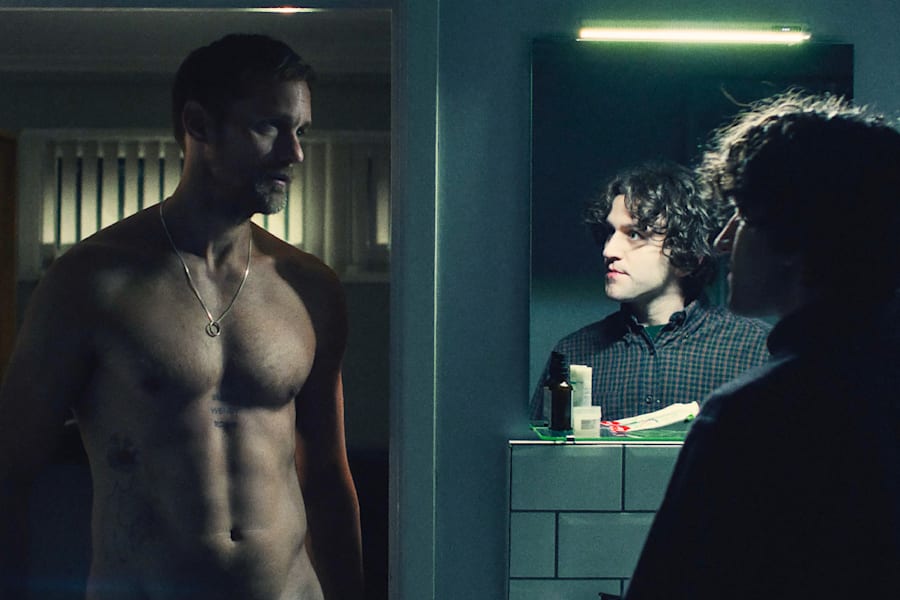
Relationships are messy, beautiful, complicated, and everything in between, and opening one up adds a whole new layer to navigate. Maybe you're just starting to explore the idea of non-monogamy, wondering how to set boundaries, or figuring out how to handle jealousy.
What works for one couple might not work for another. Wherever you're at, whether you're feeling curious but unsure, excited but nervous, or already in an open relationship and looking for guidance, it's good to remember that there's no perfect roadmap. But with clear communication, trust, and a little trial and error, an open relationship can be a deeply fulfilling experience.
We spoke with Sexuality Educator and therapist Rafaella Smith-Fiallo about some of the biggest misconceptions, unexpected benefits, and practical tips for navigating non-monogamy in a healthy, intentional way.
What is an open relationship?
Open relationships are typically described as two partners agreeing to explore romantic or physical connections with other people. Unlike monogamy, where exclusivity is expected, an open relationship allows for a bit more freedom—whether that means casual encounters or deeper emotional connections with others.
Of course, there's no textbook structure to an open relationship; every couple will set their own boundaries. Some might keep things light and casual, for example, while others might be open to more meaningful connections with others. Open relationships fall under the umbrella of ethical non-monogamy, where everyone involved is on board with the dynamic of the relationship.
Open relationships and polyamory—What's the difference?
While there is some overlap, the key distinction between open relationships and polyamory is that open relationships will usually prioritize the main partnership while allowing for outside encounters. Polyamory is more about embracing meaningful relationships with multiple people simultaneously.
"I think now, in the age of social media and movies, it can get a little blurry," Rafaella explains. "So first thing, when I hear 'open relationships,' I'm talking about non-monogamy in general, and not polyamory."
Rafaella says she sees a lot of different types of open relationships "There's so many ways to look at the non-monogamous world, from being swingers to being in a throuple, to having a threeway-type-of-behavior in your relationship—it can look like a lot of different things based on people's identities and the needs of those involved."
What are some of the common misconceptions about open relationships?
There are a lot of misconceptions about open relationships, especially from people who aren't in them, and who haven't really thought about the dynamics involved, or people who internally might struggle with the idea of sharing the person they love with someone else. Jealousy, for example, is often a big factor that people find hard to understand in open relationships, even though it's something that's natural to feel and can be worked through with open communication. But we'll get to that later.
A lot of these misunderstandings come from the way society has traditionally viewed relationships. When something feels unfamiliar or outside the norm, it can spark confusion or judgment.
1. There is nothing wrong with you or your relationship.
"The top one I hear is just like, 'Well, you just don't really love your partner then.' So people have this idea that if you really love someone and you're really committed to them, then your eyes will never wander, your heart will never stray, and they just cannot understand it.”
Rafaella says she often encounters this pattern of thinking with her clients: "I've had clients working through this, where they're wondering, 'Am I lacking something? Is my partner lacking something? What does it mean that I'm pulled in these other directions?' And so I think that's the first misconception: that wanting other relationships means something is wrong with your partner or your current relationship. And that's just not true."
2. Open relationships are not a quick fix.
Another common mistake people make is to turn to open relationships for a quick fix when things aren't working, or to try and accommodate preexisting relationship difficulties.
"Some people feel like they should just open the relationship because someone is cheating a lot. But that is not a quick fix or an easy fix. It just adds to and highlights the issues in a relationship. Some people can just be running away from problems—just like getting married doesn't fix anything!"
3. There can still be cheating and betrayal in open relationships.
Rafaella says it's important to remember that people in open relationships can still cheat, and there are still consequences to breaking each other's trust.
"That's another misconception: that there's no cheating, that there can be no betrayal in an open relationship. That's not true either. People come together to determine and define the rules and boundaries in their relationship, and those can be crossed."
Can open relationships be healthy? What are the benefits?
Open relationships can be very healthy if they are established on the basis of trust and open communication.
Starting out with clear boundaries, embracing emotional honesty, and keeping the lines of communication open are all helpful ways to make sure open relationships stay healthy. As with all relationships, navigating challenges respectfully and taking care of each other's emotional wellbeing goes a long way.
Rafaella also points to some of the less obvious benefits of having open relationships aside from the physical and sexual opportunities that present themselves. With her clients, she hears a lot about the personal growth that occurs when people learn to navigate their open relationships in a way that feels healthy for them.
"I really want to look at the benefits of non-monogamy from an emotional and maturity standpoint. I think that there are a lot of relationship skills that we have to develop in our non-monogamous relationships that we should all have in our relationships. I think there's a lot to learn when it comes to emotional maturity when it comes to dealing with jealousy, how to show up for people, how to negotiate boundaries, and things like that.
These are foundational relationship skills, regardless of romance and sexuality. The way I see it is that in every relationship, we have an opportunity to grow and get better. That's a huge benefit: learning about yourself, being able to identify your boundaries, communicating hard things, knowing how to negotiate, and opening your mind. And allowing yourself to be open and influenced by other people, too."
The challenges of open relationships
While there are a lot of benefits for people exploring open relationships, there are also challenges, as there are in all types of relationships. Being open to new experiences and dynamics can bring up unforeseen hurdles that require patience, understanding, and strong communication.
Rafaella's clients encounter a lot of social stigma when family, friends, and even coworkers find out about their open relationships. She believes that it comes from a lack of understanding, as well as the preconceived notions and societal expectations that, unfortunately, still hold a lot of weight today.
"There's just so much history there about who should date, who should be in relationships. There are a lot of 'rules.' And we're in a state now where the breaking of these rules is more visible than ever, especially because of social media. Judgment, misunderstanding, and lack of support are the major things that people experience."
While most of us depend heavily on our support networks, it's not always straightforward for people in open relationships to turn to others for advice and validation.
"People can also be really dismissive if you're in an open relationship and then come to them with a heartbreak—they might think, 'Well, what did you expect?' Sometimes, it can be really hard to get that validation, affirmation, and support from people who are not in that world, and you just feel really lonely.”
Rafaella has even come across people who have been penalized or faced the consequences at work when the nature of their open relationship has come to light."That's just wild to me," she says. "And then there's family members who don't understand. Maybe they don't want to let go of their beliefs about our lives. These are the kinds of things that people actually end up going no-contact about because they're feeling isolated or shamed, or the relationship isn't being taken seriously enough by others.”
It can be even more isolating when you add considerations of race, gender, sexuality, or body size in an open relationship because we're still managing desirability politics or sexual stereotypes about people.
It just adds another layer of conformity. People feel pressure even within their open dynamic. It can still feel like riding on a relationship escalator, but really, it should be like, 'Hey, we get to make the rules; this is my relationship.'
How to handle jealousy in open relationships?
Remember how we talked about jealousy? Unsurprisingly, Rafaella gets asked about that a lot. Avoiding it, navigating it, validating it, and dealing with it effectively. She says it's worth recognizing that feelings of jealousy are inevitable—and it's all about having the difficult conversations early and having a bit of a plan.
"When it comes to jealousy and emotions in general, one thing I want to say is… anticipate it! It's gonna happen. Whenever it comes up, it's an opportunity to identify whether there's a need not being addressed or a conversation that hasn't been had. It's about asking how we can validate our emotions while also being responsible and mature with one another. Having that leads to conversations that help us feel more secure.”
Rafaella also encourages her clients to look inward, challenging themselves to see what might trigger unwanted emotions and to consider what skills or techniques might come in handy in certain situations.
"On an individual level, it's figuring out how you're going to take care of your own emotions. It's about considering what support you'll need if you're, say, in the house looking at your phone every two seconds while your partner is out on a date. What skills do you need? And how do we also come back together when someone comes back from a date? Maybe that includes hearing all the details, or it could be like, 'Hey, I want us to get reconnected. Can we cuddle now and watch the next episode of whatever show?'”
So, have a plan. Have a plan for maintaining the connection with all of your partners so that no one feels left out or second best.
- Anticipate jealousy and anxiety coming up.
- Make a plan for how you'll tackle it. What skills will you need?
- Plan for and embrace the hard conversations. Remove the stigma and anxiety around broaching difficult topics.
For some open couples, feelings of jealousy or anxiety can make way for what's known as compersion—a feeling of sympathetic joy when someone you love is happy with another person. This is considered something of a Holy Grail for non-monogamous relationships, but it's perfectly possible given the right circumstances.
Setting boundaries and communication in open relationships
Rafaella is quick to highlight the importance of crystal-clear communication when setting boundaries in an open relationship and building flexibility as things naturally grow and adapt over time.
"It's important to establish what both parties need, asking, 'What are the things that we can recognize together that might not be acceptable?’ Sometimes, we can make these rigid rules, but then, in practice, they don't make sense or aren't logical or functional once you start dating. So we need to acknowledge that you might want to change some things and plan for how you broach that conversation so that no one feels threatened or anxious to go there." This process of regular refinement is something Rafaella says is really common with her clients, and she encourages couples to anticipate and plan to make tweaks and changes to the boundaries.
"In six months to two years, you're going to make so many changes to how this looks. We want to have these understandings, but not be so rigid so that there's anger or blame when it comes to unforeseen situations or scenarios that no one had even considered or thought about."
Hard boundaries are also important to establish too, especially around things like safe sex. "It's key to talk about the hard boundaries and limits around safety; how are you going to protect yourself and each other, and is there going to be a timeline for when that might change and you become fluid-bonded, for example."
Rafaella highlights how her clients make use of scheduled check-ins, leaving the door open to express how things are going and making small changes along the way.
"That's another thing you'll want to plan. Establish how you're going to prioritize communication and stay attuned to what might need to change. And that could be a weekly or monthly check-in."
- Establish your boundaries and build in flexibility.
- Schedule regular check-ins to see what's working and what needs to change.
- Discuss what happens if someone slips up or something unforeseen happens.
- Set hard boundaries that cannot be broken, especially around keeping safe.
Whichever path you choose, it's clear from Rafaella's experience and advice that prioritizing communication, understanding, and honesty is going to make the whole process easier.
Asking the right questions, being respectful of each other's emotions, fears, and triggers, and planning for difficult conversations all form a great roadmap for a successful open relationship.
"You want to set parameters that feel good for everyone so that you can actually figure this out— because it may not be that you end up doing this together at all. Think about the current status of your relationship, the strengths, the areas of growth you already have, and what tools and resources you can pool into possibly making this transition in your relationship. And what areas you might need some additional support: reading books, seeing a therapist, asking your community, etc."
Rafaella concludes: "Just be in a space of appreciation, gratitude, and love with your current partner before going into all the things you want to add or change."
However successful your experience with an open relationship might be, you might decide you both feel more comfortable finding your way back to monogamy. And we've got a handy guide to navigating that journey, too.
If you're curious about exploring open relationships or are ready to meet like-minded people, Feeld is the perfect platform to start your journey. With a space dedicated to supporting people on their unique relationship paths, it's a great way to connect with others who share your values.


